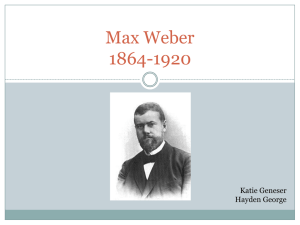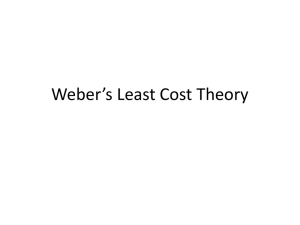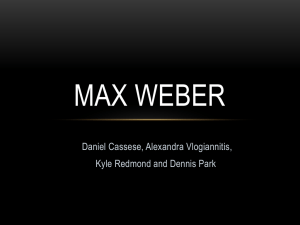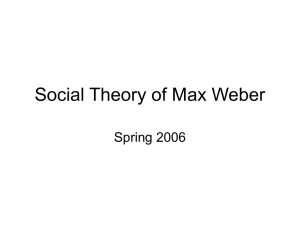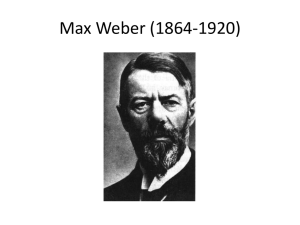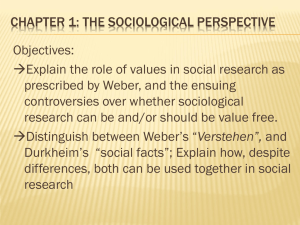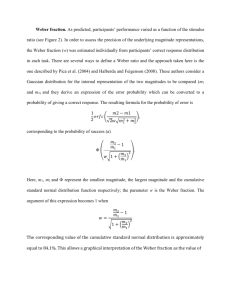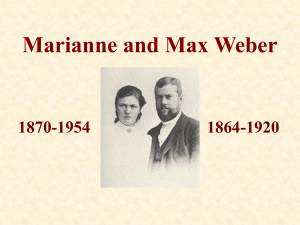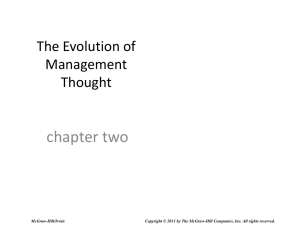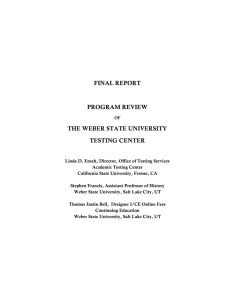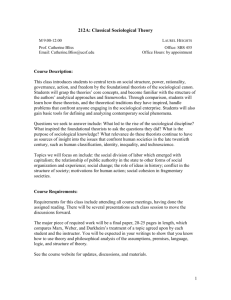Max Weber (1864
advertisement
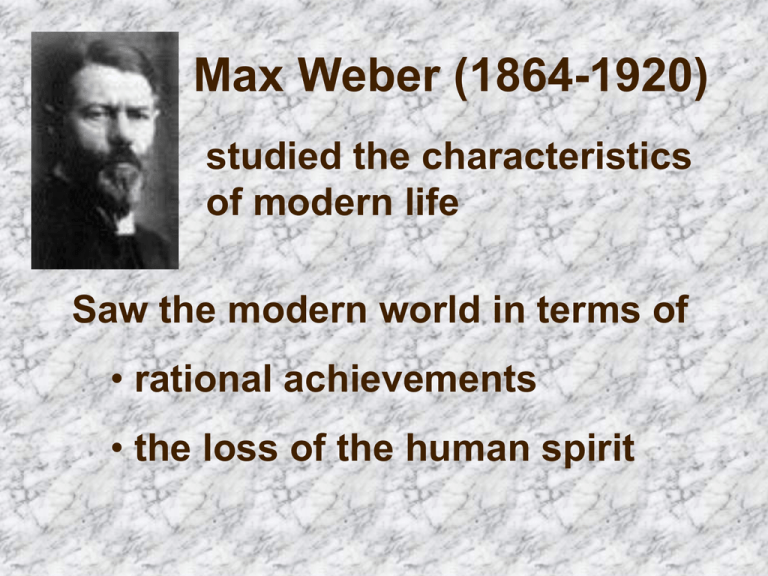
Max Weber (1864-1920) studied the characteristics of modern life Saw the modern world in terms of • rational achievements • the loss of the human spirit Max Weber (1864-1920) Rationalization – An increasing, long-range tendency in all areas of life to replace the mystical, the subjective, and the sentimental with the logical, the objective, and the scientific. Max Weber (1864-1920) Rationalization (examples) • greater value on rational thinking than on intuition • higher salaries of scientists, in contrast to artists • structure of modern organizations Max Weber (1864-1920) Bureaucracy −prime example of rationalization A form of social structure that aims to use people and resources rationally and efficiently Max Weber (1864-1920) Bureaucracy • Specialization of tasks and division of labor • Formal system of rules/procedures • Written documentation kept in files • Clearly defined structure of authority (hierarchy) Max Weber (1864-1920) Bureaucracy • Specialized administrative staff (maintains records and communication) • Impersonal orientation toward clients and employees • Career employment Max Weber (1864-1920) Research Methodology – • Social sciences are different from the natural sciences • study human beings, not objects • require their own method • May be pursued with passion Max Weber (1864-1920) Research Methodology – Verstehen (“to understand”) • Sympathetic understanding • Viewing a situation from the viewpoint of the actor within it • Subjective approach, but rational and systematic Max Weber (1864-1920) Differed from Durkheim • Less concerned with objectivity than with understanding the meaning of social phenomena to the individuals experiencing them • Greater emphasis on viewing social structures historically than on examining their present functions Max Weber (1864-1920) Differed from Marx • Emphasized the role of ideas in generating social structures (Protestant Ethic and the Spirit of Capitalism) • Saw social class as one kind of inequality, in addition to status and power Max Weber (1864-1920) Class − an economic category − related to life chances − determined by market factors Power − Ability to get one’s way with others, even against their will − May be determined by economics or political party Max Weber (1864-1920) Status − social honor − different from individual respect earned by personal qualities – given on the basis of position − may be related to occupation − may be used to explain ethnic or racial discrimination Max Weber (1864-1920) Forms of Authority • traditional − by heredity (king) • rational-legal − tied to position (bureaucrat) • charismatic − derived from personality of leader − emerges in a time of crisis (economic, political, moral) Max Weber (1864-1920) Protestant Ethic • • • • Demostrates how ideas derived from a religion (Calvinism) influenced development of an economic system (Capitalism) Predestination Virtues of the elect (hard work, thrift, honesty, punctuality, self-control) Reinvestment of profits Utilitarian motive Max Weber (1864-1920) Protestant Ethic • emphasizes ideas • does not exclude material factors • forms part of a larger sociology of religion that includes analysis of social class in relation to belief Max Weber (1864-1920) Summary – Characteristics of Weber’s work • A profound humanism (concern over loss of the human spirit) • Strong sense of history (studying structures in process) • Passion for knowledge – thorough Max Weber (1864-1920) Summary – • theme of rationalization • Verstehen – understanding; an attempt to make sense of the world • Rounding out of dialectical materialism – Emphasis on role of ideas – Broader class analysis
